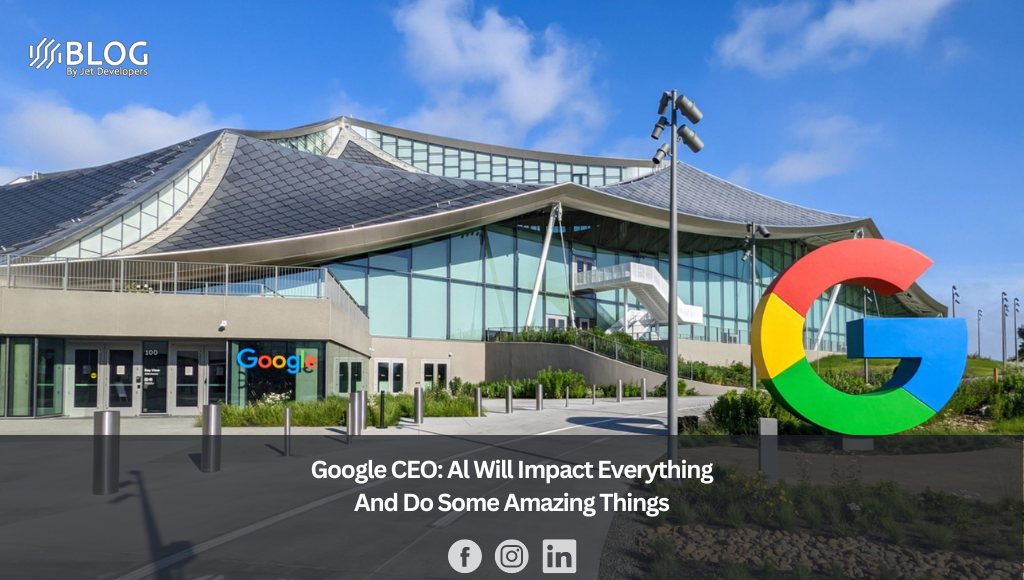Sundar Pichai, the CEO of Google, expects artificial intelligence (AI) to impact every product across every company. Speaking to Scott Pelley on 60 Minutes, Pichai and other AI experts at Google shared their views on the technology that is “very profound” but still in its “early days”.
During his visit to Google’s new campus in Mountain View, California, Pelley learned that the campus now runs on 40% solar energy and utilizes more water than it consumes. However, the main focus was on the AI race, where OpenAI, backed by Microsoft, has taken the lead, leaving Google behind. Pelley was introduced to various AI-powered tasks at Google and also gained insights from the professionals behind the technology about what to expect in the future.
AI and the future
In the world of AI, Google Bard is making headlines. Despite receiving some negative attention, this AI chatbot has accomplished some impressive feats. It can summarize the New Testament in just 17 seconds and translate it into four languages from a six-word prompt. It can also take a few words and transform them into an emotionally charged story, and then convert it into prose.
With AI technology advancing rapidly, many are concerned about how it will impact the job market. James Manyika, Senior Vice President at Bard, believes that certain occupations may decline while others will rise. However, the majority of jobs will see their definitions changed as AI and automation become more prevalent.
Sundar Pichai, CEO of Google, predicts that AI will have a profound impact on various products and industries. Knowledge workers such as writers, accountants, architects, and software engineers will likely see their jobs disrupted. While AI has its benefits, there are also risks associated with the technology. For instance, AI can cause hallucinations and rapidly spread disinformation. To prevent such negative impacts, Google is taking a slow and cautious approach in releasing its products to the public, allowing for feedback and time for society to adapt.
One of the challenges with AI technology is that developers don’t fully understand how it works. It’s referred to as a “black box” because people can’t see inside to understand the mechanisms that make it function. As AI becomes more human-like, some fear that it could lead humanity to its doom. However, Google remains optimistic and believes that the introduction of AI should happen gradually to allow civilization to get accustomed to it.
Google’s robots are already making their presence felt in the cafeteria and on the soccer pitch. The robots can listen to voice commands and fetch an apple from a basket or learn how to play soccer. Demis Hassabis, who created DeepMind, a company Google acquired nearly a decade ago, isn’t too worried. While AI can improve itself and work nonstop, humans are an adaptable species, and we will learn to live with AI just as we have adapted to smartphones and other computing devices.
Manyika believes that new technologies like AI raise important questions about our value systems as a society. Over the next ten years, Pichai predicts that society will develop capable AI that can achieve amazing things, but it’s up to us to adapt to this new reality. Criticisms of the technology rollout will push society to create regulations and treaties among nations to make AI safe. The pace at which this will happen is yet to be decided.






